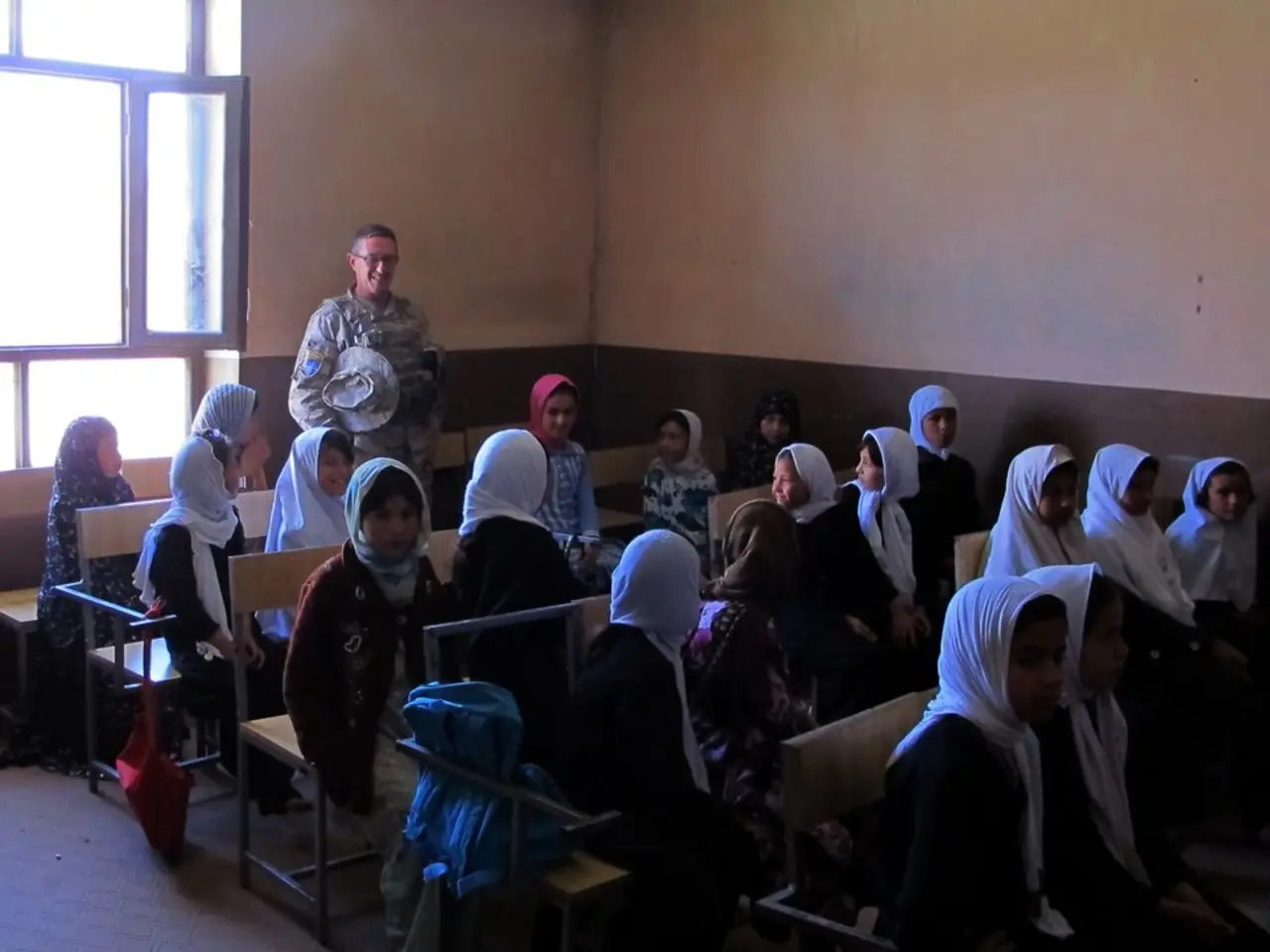Extremist Beate Zschaepe, responsible for the deaths of 10, including 8 Turks due to terrorism linked to the National Socialist Underground, now partakes in a right-wing rehabilitation plan.
Beate Zschaepe, the last surviving member of Germany's Nationalist Social Underground (NSU) terrorist group, has been accepted into a far-right deradicalization program, a move that carries significant implications as a strategic move to influence her upcoming parole application in November 2026.
The "Exit Program from Far-Right Extremism," designed to help extremists leave their ideology, may be viewed positively by the court in assessing Zschaepe's rehabilitation and suitability for conditional release, potentially improving her chances despite the severity of her crimes.
Her lawyer has emphasized the confidentiality of her involvement but suggests it could sway judicial decisions, indicating the program is being used tactically rather than purely for personal ideological transformation.
The move has sparked criticism from families of NSU victims, like Enver Simsek's, who see this enrollment as a calculated move rather than genuine contrition. Seda Basay Yildiz, Simsek's lawyer, reflected skepticism about the program's impact on Zschaepe's remorse or rehabilitation.
Given Zschaepe's role in the racially motivated murders committed by the NSU, her involvement in the exit program touches on sensitive issues of far-right extremism, accountability, and deradicalization policies in Germany.
The NSU trial, one of Germany's most comprehensive cases, involved 14 lawyers defending five defendants and 60 lawyers representing 93 victims. The proceedings included 438 hearings, with testimony from 765 witnesses and 56 experts.
Barbara John, appointed by the German government, has criticized the early release process for Beate Zschaepe. John called for the government to hear the voices of NSU terror attack victims before any decision on Zschaepe's potential early release. Under German criminal law, prisoners sentenced to aggravated life imprisonment can apply for conditional release after serving 15 years.
However, Zschaepe's initial application for parole may be rejected due to the severity of her aggravated life sentence. If her first application is rejected, she can submit similar applications every two years under German law.
In summary, Zschaepe's participation in the deradicalization program ahead of parole is viewed largely as a tactical legal maneuver intended to improve her parole prospects, rather than a clear sign of ideological change, carrying both judicial and political implications. As Zschaepe's parole hearing approaches, the question remains: Will her participation in the deradicalization program be enough to sway the court in her favour?
[1] Based on the provided bullet points.
[1] Turkey's government might contemplate the implementation of a similar deradicalization program for extreme right-wing individuals involved in crime and justice cases, following the news about Beate Zschaepe in Germany.[2] In light of the ongoing criticism over the parole prospects of Beate Zschaepe in Istanbul's general-news scenes, officials could face pressure to address the issue of far-right extremism and its impact on crime and justice.[3] The enrollment of Beate Zschaepe in the exit program for far-right extremism in Turkey could spark debates and political discussions, as people question the effectiveness of such programs in promoting genuine rehabilitation and accountability.







